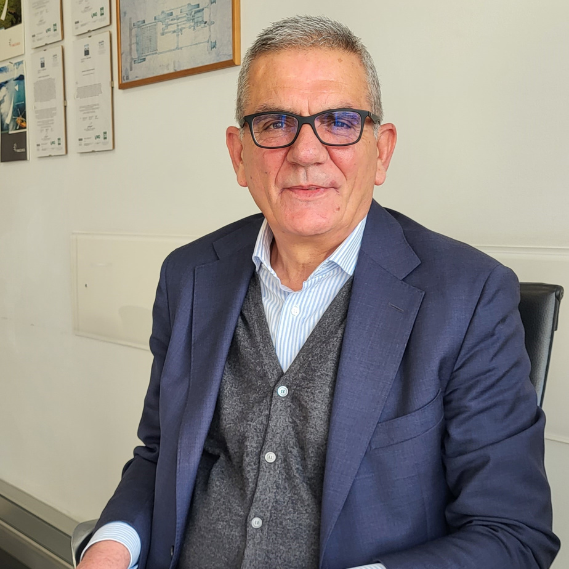Head of the Environmental Policies and Risk Prevention Unit
What skills should a person choosing to work in your field have?
As well as possessing the necessary technical and scientific skills, anyone involved in environmental protection and management should be a bit idealistic, they should be able to act locally and look globally, have good communication and interpersonal skills and, finally, be focused on sustainability issues as a core aspect of who they are, both privately and professionally.
How important is the environment in the world of business?
In the preface of the Environmental Blue Book, the first book on the environmental activities of Leonardo Global Solutions (LGS), which I edited a few years ago, I wrote that environmental protection and sustainability cannot be separated from business and its strategies and the geographical and social context in which it is conducted. In the context of LGS activities, this aspect is even more relevant and significant for the preservation of value, e.g. of real estate, and the creation of future value, as well as for the offering and provision of zero or low environmental impact services.
What's more, from the drafting of Leonardo's sustainability plan to its implementation, LGS has played, and will continue to play, an important role especially in the environmental aspects: water, the water cycle, waste, and energy.
We are currently working on three pillars of good sustainable management in the environmental sphere:
· breaking the 'I am compliant' habit, in other words no longer focusing on mere regulatory compliance aspects, but looking beyond them: addressing issues of risk prevention and precaution, even outlining management approaches and models that are innovative, perhaps not in absolute terms, but certainly for our context;
· activating paths to environmental sustainability by including all those who manage and participate in company and non-company projects and activities, clearly including suppliers and customers;
· formulating environmental objectives and targets, and the corresponding human and economic resource efforts, based on the local, national and global business context in a way that is dynamic and proactive.

Does LGS apply environmental criteria when selecting suppliers?
There are precise commitments for suppliers wishing to work with LGS: being fully compliant with applicable environmental laws and regulations, possessing certifications, and having environmental improvement plans. These requirements are subject to careful verification even before the job is assigned. In addition, particular attention is paid to the process of selecting service providers who, by their nature or the activities they perform, may generate significant environmental impacts (e.g. waste collection, transport, recovery and disposal services). In these cases, the possession of specific qualifications, proven skills and ISO 14001 certification for environmental management systems represent not a plus but rather a prerequisite for access and participation in tenders.
Do you have a message to share?
If you want to explore further, read: "Silent Spring", by Rachel Carson or "The Limits of Development" (Donella H. Meadows, Dennis L. Meadows, Jørgen Randers, William W. Behrens III) of 1972, both "prophetic" about what we are experiencing today. The second one, in particular, suggests viable paths to environmental, ecological and economic stability. After reading these books, you too will become a bearer of positive environmental messages.

